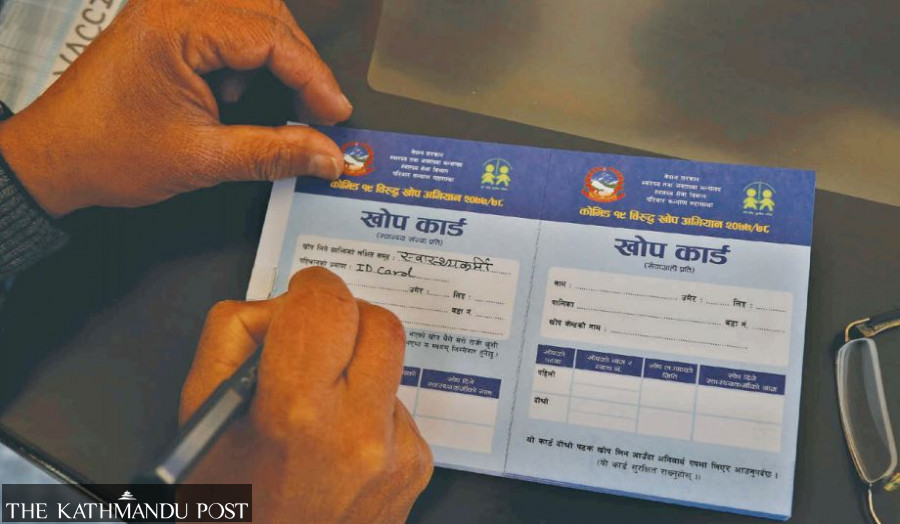Health
Vaccination card mandatory to use public amenities from January 21
Home Ministry issues a circular to ban gatherings of more than 25 people.
Post Report
Come January 21, you will have to produce your vaccination certificate, or a photo of it, to enter some public facilities and access government services. This comes as a response from the Home Ministry to the rising number of coronavirus cases in the country.
The Covid-19 Crisis Management Coordination Committee (CCMCC), the government agency to respond to Covid-19, on Sunday had made a recommendation to that effect.
The Home Ministry has also instructed district administration offices and security agencies across the country to bar gatherings of more than 25 people. This decision will come into force as per the concerned District Covid-19 Crisis Management Centres analyses on the Covid-19 situation.
“The ministry has sent a circular to all 77 districts in line with the recommendations made by the CCMCC on Sunday,” said Pradeep Kumar Koirala, spokesperson for the Home Ministry. “We have included all the recommendations the CCMCC has made to the Home Ministry.”
Though the CCMCC had recommended mandatory vaccination cards to enter public places from January 17, the Home Ministry has pushed it to January 21.
Public places, according to the Home Ministry, include offices, hotels, restaurants, cinema halls, stadiums, airports and parks, among others.
Earlier on Monday, the Ministry of Education decided to close schools across the country from Tuesday until January 29.
Nepal has been seeing a steady surge in coronavirus cases for the past few weeks, with the country confirming 24 new Omicron infections on Friday.
On Monday 1,357 people tested positive from 8,965 PCR tests, a sudden rise from Sunday when 841 people had tested positive.
According to the Health Ministry statement on Monday, 89 people tested positive from 2,464 antigen tests.
Public Health experts say the government should have woken up long before Omicron hit the country, but it’s better late than never.
“Decisions like limiting the use of public amenities to those who have been vaccinated could have been taken much earlier, as it could have encouraged more people to get jabbed,” said Prabhat Adhikari, an infectious disease expert. “I hope the decision to allow only vaccinated people to enter public facilities and avail government services will prompt more people to rush to vaccine centres.”
Despite having enough doses in stock, Nepal’s vaccination drive has slowed down lately due to multiple reasons.
As of Monday, 11,232,683 people, or 37 percent of the total population, have been fully vaccinated.
Nepal has so far received 39,203,927 doses of vaccines—Vero Cell, Pfizer, Moderna, Johnson & Johnson and AstraZeneca.




 16.12°C Kathmandu
16.12°C Kathmandu













